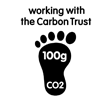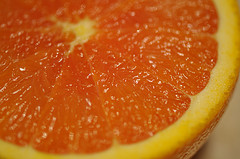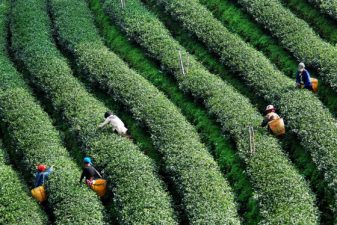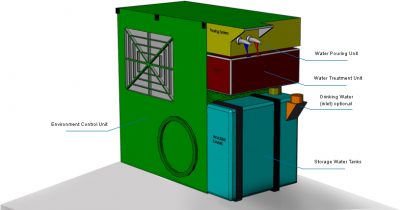How many shades of green can a Jaffa orange be? Israeli fruit and vegetable grower and supplier Mehadrin (owned by Hadarim, a property and building group, and a succession of other parent companies) is working with British supermarket chain Tesco in a bid to mark all its Jaffa oranges with the Carbon Trust label, a carbon footprint. This label will show that 125kg of carbon per kilogram of oranges was used or created during the growing, handling and shipping of the product.
Mehadrin is so far the only Israeli food company to be working on displaying the carbon measurement of its products (see Bagir, which is carbon labeling its eco suits), and in doing so is cleverly tapping into environmental issues that are close to many British consumers’ hearts (and I speak as a sensitive British consuming expat).
Knowing that the shipping of food around the world is one of the most carbon-intense issues for the food Industry, the movement within the UK to buy locally grown and produced food is now huge. Clearly oranges aren’t yet grown in the UK, so Tesco has wisely tapped into the consumers wish to have greater knowledge of and control over how their food is grown and transported.
Tesco has recently come under media and consumer attack within the UK for its refusal to support celebrity chef and campaigner Hugh Fearnley-Whittingstall’s efforts to promote organic, free-range chickens (instead of battery farmed and caged poultry), so it feels like the mega-rich supermarket chain wins one day, loses the next.
 But great kudos to Mehadrin; its CEO Guy Binstok and business development manager Dov Warmen, for this initiative, which will certainly win eco-consumers support and respect. Mehadrin’s sales in 2007 were NIS 955 million (about $200 million), of which NIS 750 million was made in the export market, so the Tesco/Carbon Trust contract is highly lucrative for them.
But great kudos to Mehadrin; its CEO Guy Binstok and business development manager Dov Warmen, for this initiative, which will certainly win eco-consumers support and respect. Mehadrin’s sales in 2007 were NIS 955 million (about $200 million), of which NIS 750 million was made in the export market, so the Tesco/Carbon Trust contract is highly lucrative for them.
Mehadrin grows its produce (not just juicy Jaffa oranges, but avocados, dates, potatoes and probably pomegranates too) in the 15,000 dunams of orchards that it owns in Israel, as well as managing another 45,000 dunams for other companies.
Dov Warmen estimates that this is around 2.5 million trees: “That’s a big garden and we’re planting thousands of dunams more, which will add to the carbon equation,” said Warmen in an interview with Ha’aretz recently. “We want to be one step ahead of everyone else,” CEO Binstok declared. Mehadrin plans to use its land and trees as a business lever and sell carbon credits, based upon the amount of CO2 these millions of trees are soaking up.
Green Prophet will keep an eye on developments, and report back shortly.
Related carbon friendly Green Prophet posts:
SAHA’s organic, fairtrade, and fairly local food
Say “Yes” to Carrots
::Haaretz





Oranges are a very water-intensive crop, and by exporting oranges we are basically transferring our meager, subsidized water resources to water rich (but orange poor) countries. So although the trees capture carbon, they also require a big investment in water. The use of reclaimed water is better than drinking water, but is still a resource that needs to be managed properly.
Israel will always need to import food, since there is not enough water available to grow all the produce we need. We should focus on drought tolerant crops which use less water – at least we don’t grow rice!
Countries with limited water resources (like Israel) should reconsider subsidies of water for agriculture and decide whether this is the optimal use. Although the first task is to eliminate the waste in the system – it’s been reported that 10% of the water flowing through the distribution network is lost to leaks.